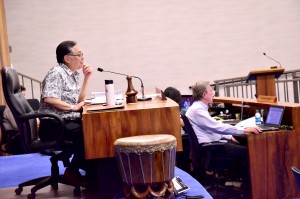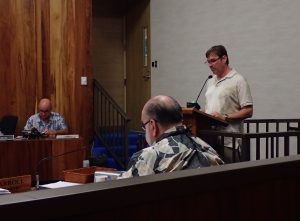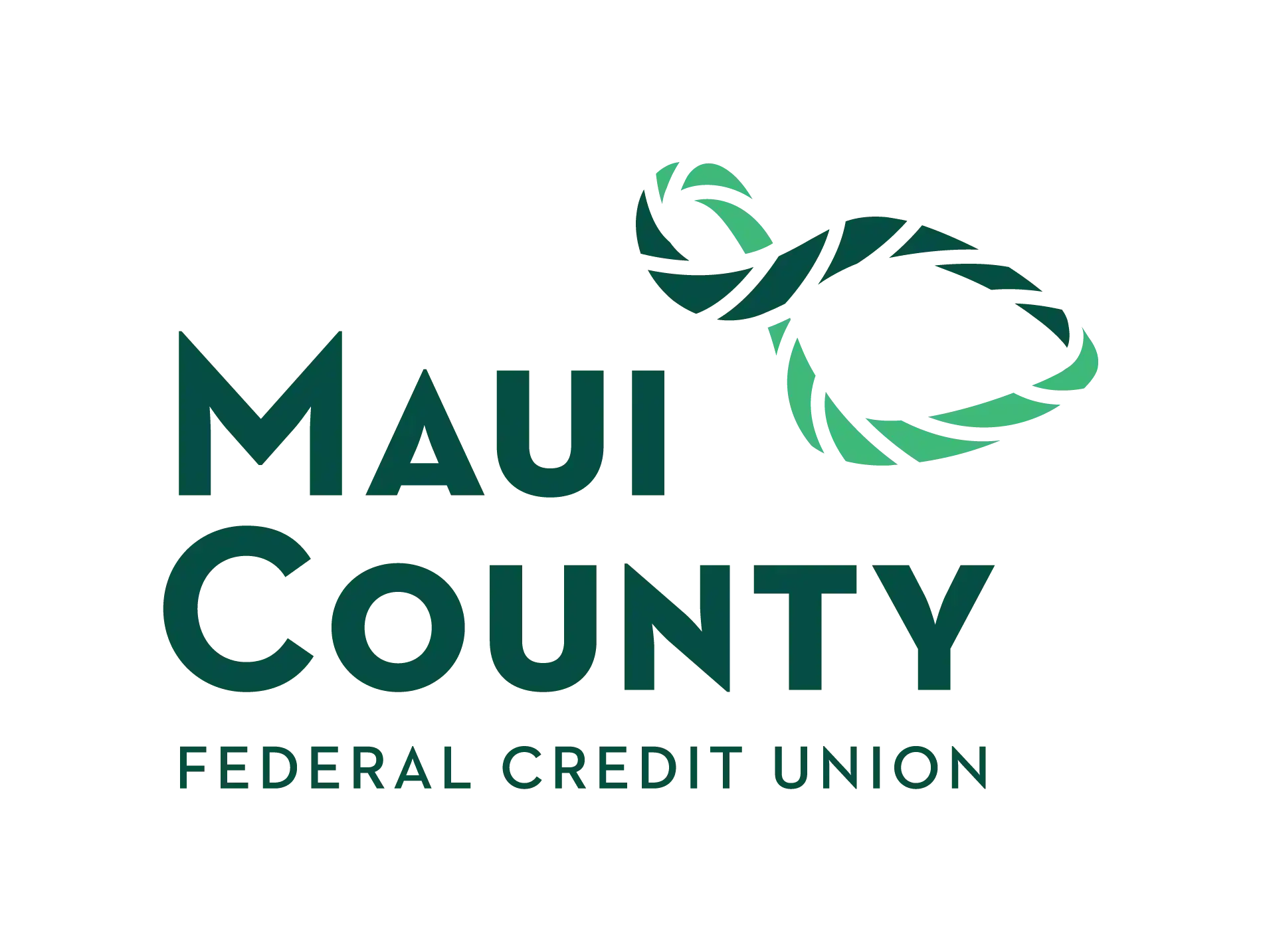Maui B&B Owners Dispute ‘Punitive’ Tax Rate

Budget and Finance Committee Chair Riki Hokama. Photo credit: Office of Council Services.
After extensive committee meetings to review the proposed fiscal year 2017 budget, Maui County Councilmember Riki Hokama, chair of the Budget and Finance Committee, presented a version of the budget that he said would “cut real property tax rates and invest in Maui County’s infrastructure.”
Every April, the Maui County Council reviews the budget for the upcoming year. Hokama’s draft provides the basis for the committee’s decision-making process, which is expected to continue throughout the week.
“This year, we must again bring common sense and fiscal discipline back into the budget process,” said Hokama. “This means balancing the many funding requests with our community’s ability to pay.”
Hokama said his proposal would decrease real property tax rates for most classifications to lessen the impact of higher valuations.
In this case, “most” does not include the Commercialized Residential permitted properties—Maui’s bed-and-breakfasts, for which Hokama proposes an approximate 40% (exactly 37.93%) increase, while maintaining or reducing tax rates by 2% for other classifications.
Hokama’s proposed rate is $6 per $1,000 net taxable assessed valuation, up from last year’s $4.35 per $1,000 net taxable assessed valuation.
The tax classification of Commercialized Residential was created by the County Council in 2009 specifically for the property owners seeking bed-and-breakfast permits.
B&B permit holders must own and live full-time on the property. The B&B permit allows a portion of the property to be rented for periods of less than 180 days at a time.
In comparison, short-term “vacation” rental permit holders must own, but do not live on the property. Permitted short-term rental owners must employ a local property manager to handle reservations and tax payments for the property.

Tom Croly, a Maui Vacation Rental Association board member and a permitted bed-and-breakfast owner. Maui Now photo.
“In the proposal for tax rates submitted by the mayor, no tax-rate changes were requested,” Tom Croly, a Maui Vacation Rental Association board member and a permitted bed-and-breakfast owner, relayed to Maui Now by email. “In the proposal submitted this week, all tax rates were reduced by approximately 2%, except the timeshare rate, which stayed the same, and the Commercialized Residential rate, which was increased from $4.35/$1,000 to $6/$1,000.”
Croly said, “With this punitive rate, Hokama seems to be sending a message to this particular group of Maui resident homeowners.”
Croly was one of about a dozen B&B owners who presented testimony at the County Council Budget Committee Meeting on Real Property Tax on Wednesday, April 27.
Croly, on behalf of the MVRA, began by saying he was saddened to have to address this issue of fair tax treatment for the 114 owner-operators who hold bed-and-breakfast permits (118 including conditional permit holders).
“We have had this discussion three times before and it is unfortunate we must have it again,” Croly said.
“The island residents who have stepped up to the plate, followed all the rules and have been granted bed-and-breakfast permits should not be subject to excessive taxation,” Croly stated in his written testimony. “First, these folks lose the benefit of their $200,000 homeowner exemption, even though they are indeed Maui island homeowners residing full-time in their homes. Yet, they are the only homeowners in Maui County denied this exemption. A host of other permitted home businesses operate with no loss of homeowner exemption.”
In addition, although B&B’s use only a portion of the home, the proposed tax rate applies to the entire home and property.
B&B owners are subject to a tax rate 60% higher than the homeowner tax rate that would apply to them if they had not applied for and received their permits, Croly said.
“This results in taxes that are roughly double what they would be if B&B owners were taxed as homeowners as all other home-based business owners are,” Croly said.
For example, the owner of a $500,000 home (without a B&B permit) would pay $801 in property tax under the proposed homeowner rate ($2.67/$1,000 + $200,000 exemption).
A permitted B&B assessed at $500,000 would incur the current Commercialized Residential rate of $4.35/$1,000, which raises the tax to $2,175.
Hokama’s proposed rate of $6/$1,000 increases the tax rate for the $500,000 property to $3,000—an approximate increase of 40%.
“No one wants to pay higher taxes, but these folks have accepted the doubling of their real property taxes over the past seven years as a portion of the price they pay for the right to welcome guest into a part of their homes,” said Croly. “But the $6 tax rate in Chair Hokoma’s budget proposal would have the net effect of not just doubling, but tripling the tax they would otherwise have to pay without a permit and is not justifiable in any way.”
These 114 homeowners collectively pay an additional $383,000 per year in real property taxes as a result of their permits, Croly said.
“I would hope that we can get every property owner wishing to welcome guests into their home properly permitted and then the additional tax contribution from this relatively small class would exceed $1 million a year,” Croly said.
“Increasing this additional amount of tax only further discourages compliance with our B&B ordinance and treats these homeowners unfairly,” said Croly.
“This proposed tax hike is not going to encourage illegal owners to come forward,” added a MVRA member.
Croly asked that the county adjust the tax rate for the Commercialized Residential tax classification to match that of the other classifications for this tax year.
“If the other classifications rates are reduced by 2%, then please reduce last year’s $4.35 rate for the B&Bs by the same amount,” Croly said.
The additional tax paid by these homeowners is roughly equal to that of the tax paid on similar hotel rooms, when the total tax of a hotel is divided by the number of rooms and compared to the B&B rooms in similar price classes, according to Croly.
Croly used the Kā‘anapali Beach Hotel, run by General Manager and Councilmember Mike White, as an example of the inequity in taxes paid by large hotels and small B&Bs.
The Kā‘anapali Beach Hotel pays approximately $463,000 in real property tax on its 430 guest rooms, restaurants, and commercial and common areas, which is approximately $1,076 in taxes per guest room, according to Croly.
The 114 properties in the B&B classification represent 351 permitted rooms for rent, Croly said. The total tax paid by this class at the mayor’s proposed tax rate ($4.35/$1,000) is $710,970 or approximately $2,025 per permitted room.
“Even if we just consider the $383,000 of additional tax paid above the homeowner taxation for this class, it comes to $1,091 additional tax per permitted room—almost the same amount that the Kā‘anapali Beach Hotel pays per room. ” said Croly.
Hokama’s proposed rate drives the total tax per room up to $2,793, an additional $1,859 per room when compared to the homeowner rate.
“That is simply not fair,” said Croly.
In response to Hokama’s comment, “our community’s ability to pay,” another MVRA member added, “Most B&B owners are not wealthy. As nice as it is to share our little slice of heaven and meet new visitors every week, if I didn’t need the money, I wouldn’t rent my cottage at all. Every year, it is getting harder to make ends meet.”
Croly urges those who will be impacted by the proposed increase in the Commercialized Residential tax rate to email their council representatives, and/or attend the budget meeting on Friday, April 29, at 1 p.m. to present their testimony to the council committee.
The county fiscal year begins on July 1. First reading of the budget is anticipated for May 20, with second reading on June 3. The council must pass the budget by June 10.
MAUI NOW STORY LINK
Hokama’s Budget Proposal Cuts Real Property Tax Rates










